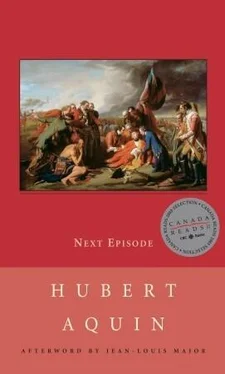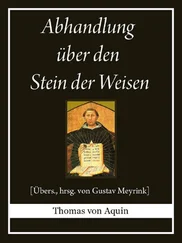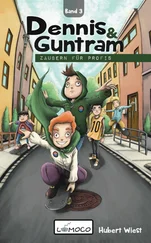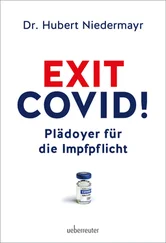Hubert Aquin - Next Episode
Здесь есть возможность читать онлайн «Hubert Aquin - Next Episode» весь текст электронной книги совершенно бесплатно (целиком полную версию без сокращений). В некоторых случаях можно слушать аудио, скачать через торрент в формате fb2 и присутствует краткое содержание. Год выпуска: 2001, ISBN: 2001, Издательство: McClelland & Stewart, Жанр: Современная проза, на английском языке. Описание произведения, (предисловие) а так же отзывы посетителей доступны на портале библиотеки ЛибКат.
- Название:Next Episode
- Автор:
- Издательство:McClelland & Stewart
- Жанр:
- Год:2001
- ISBN:9781551996240
- Рейтинг книги:3 / 5. Голосов: 1
-
Избранное:Добавить в избранное
- Отзывы:
-
Ваша оценка:
- 60
- 1
- 2
- 3
- 4
- 5
Next Episode: краткое содержание, описание и аннотация
Предлагаем к чтению аннотацию, описание, краткое содержание или предисловие (зависит от того, что написал сам автор книги «Next Episode»). Если вы не нашли необходимую информацию о книге — напишите в комментариях, мы постараемся отыскать её.
is a disturbing and yet deeply moving novel of dissent and distress. As he awaits trial, a young separatist writes an espionage story in the psychiatric ward of the Montreal prison where he has been detained. Sheila Fischman’s bold new translation captures the pulsating life of Aquin’s complex exploration of the political realities of contemporary Quebec.
Next Episode — читать онлайн бесплатно полную книгу (весь текст) целиком
Ниже представлен текст книги, разбитый по страницам. Система сохранения места последней прочитанной страницы, позволяет с удобством читать онлайн бесплатно книгу «Next Episode», без необходимости каждый раз заново искать на чём Вы остановились. Поставьте закладку, и сможете в любой момент перейти на страницу, на которой закончили чтение.
Интервал:
Закладка:
THE END
Afterword BY JEAN-LOUIS MAJOR
Shortly after two o’clock in the afternoon of March 15, 1977, Hubert Aquin was found lying on the road beside his car, a red 1976 two-door Ford Granada, in the park surrounding Villa Maria, a private school in the middle-class neighbourhood of Notre-Dame-de-Grâce near his home in western Montreal. He had shot himself in the head. Blood and brain tissue were splattered as far as the large elm trees standing more than twenty-five feet away, but his dark-blue suit with matching light-blue shirt, silk vest, and tie remained undisturbed and immaculate. He was forty-seven years old.
Neither the manner nor the circumstances of Aquin’s death, nor even, for that matter, the fact of his death, has anything to do with the novel you have just read or anything else he ever wrote, except those few short letters he left unmailed and unstamped as was his habit, advising friends of his previously and elaborately discussed decision to commit suicide. The manner and circumstances of his death, however, have much to do with Hubert Aquin as literary icon, and thus with the manner in which everything he wrote is now regarded and, sometimes, read.
When he committed suicide, Aquin became the exemplary literary figure for the post — Quiet Revolution and post — Parti Québécois — election period. He thus replaced Paul-Émile Borduas, the intellectual godfather of the Quiet Revolution, who had lost his job as a teacher at the École du Meuble in 1948 for writing Refus global , a pamphlet of incendiary rhetoric, and died in Paris in 1960 at the age of fifty-five.
Conditions for admission to the pantheon of martyrs of Quebec literature are not clearly defined: membership varies according to prevailing ideological currents. Conservative moods have long favoured Octave Crémazie, the nineteenth-century poet who died in exile in France to avoid going to prison after his Quebec City bookstore went into bankruptcy. Liberal times attribute a more exalted status to Louis-Antoine Dessaulles, the fiery journalist and anticlerical polemicist who, in 1875, had to follow the same route as Crémazie after resorting to a number of falsifications to avoid bankruptcy. According to others, this group should include essayist and novelist François Hertel, who moved to France in 1949 after leaving the Jesuit order, but it now seems Hertel has been eclipsed by poet, novelist, and literary critic Louis Dantin, another former cleric, who fled to Boston, where he became a typographer at Harvard University Press at the beginning of the twentieth century.
For some time in the forties and fifties, and even well into the sixties, Hector de Saint-Denys Garneau seemed to meet all the requirements to be considered a literary martyr. He published a single collection of poems in 1937, and died at the age of thirty-one in 1943, after living in seclusion in the family manoir since the age of twenty-two. Despite having published so little, Saint-Denys Garneau’s image suffered from the fact that he had died of a heart attack, notwithstanding the efforts of some of his admirers to present his death as a suicide or, even better, a collective murder. On the other hand, poet, playwright, and cosignatory of Refus global Claude Gauvreau, who was long associated with Paul-Émile Borduas and in fact became the self-proclaimed leader of the Automatist movement when Borduas left Montreal for New York and, later, Paris, seems to meet all the essential conditions for membership: he committed suicide in 1971 after having been interned in various mental institutions. In Gauvreau’s case, the difficulty arises from the fact that he wrote abundantly, if somewhat obscurely.
The paradigm for these mythic figures remains the poet Émile Nelligan, who, at the age of eighteen, was locked up in an insane asylum where he remained for forty-two years, without ever writing another line of verse, until his death in 1941. In the 1980s, Nelligan was the subject of a biography that was at least ten times the size of his collected poems; he was even the subject of an opera written by playwright Michel Tremblay and composer André Gagnon. Nelligan’s poems may have gone out of print, but his biography is now available in paperback.
That is more or less the company Hubert Aquin joined in the collective imagination immediately upon his death. What is exceptional about Aquin’s situation is that he had already attained an equivalent status upon publishing his first novel, Prochain épisode , in 1965. That he became a mythic figure at such an early date is due to a unique convergence of circumstances, social, political, and personal, as well as literary. This latter aspect, however, would normally be the least of considerations: one of the advantages of literary martyrdom is to give non-readers the opportunity of knowing all there is to know about a writer without having to change their own privileged status.
Although Next Episode is set in Switzerland, this story of a Québécois terrorist on a mission to murder a counter-revolutionary whose identity and role remain problematic is imagined and narrated by a terrorist who was arrested and sent to a psychiatric institution before he had the opportunity of setting out on his own destructive mission. The narrator’s predicament in the novel mirrored that of Aquin himself at the time he wrote Next Episode : he was being held at Institut Albert-Prévost after being arrested for driving a stolen car and carrying an illegal firearm. Upon being arrested and asked his occupation, Aquin had stated that he was a revolutionary. In less felicitous circumstances, he would later publish an essay titled “Profession: Writer.”
At the time of his arrest, Aquin was well known as a producer and director of radio and television programs for Radio-Canada and documentaries for the National Film Board. He had also been a member of the editorial board and, for a few years, the editor of the literary magazine Liberté . Aquin was thus closely associated with the institutions that defined and nurtured Quebec’s literary elite.
Though a brilliant intellectual who wrote some of the most illuminating essays in Quebec literature, Aquin remained somewhat of an outsider. His novels were highly acclaimed in Quebec, but rather than the traditional image of the writer, he more closely resembled, at least outwardly, the stockbroker that he was for a while, or even the banker or businessman that he aspired to be — he was the founder and president of a company that tried to organize Grand Prix racing in Montreal — if not the race-car driver he dreamed of becoming.
Through all that, how was Prochain épisode read? Aquin is an author on whom an exceptional number of monographs, theses, and articles have been written — though not as many as on Nelligan, naturally. The question remains, however: Was Aquin’s novel really read? And if so, how?
If you are reading this afterword, it probably means you have resisted the lure of mythology and have ventured into reading the novel, unless you are cheating. But how did you read the novel?
I remember my own sense of amazement the first time I read this novel. I was immediately fascinated by the power and beauty of the opening sentences. With its internal echoes and intriguing, contradictory images, the first sentence will forever be imprinted in my mind: “ Cuba coule en flammes au milieu du lac Léman pendant que je descends au fond des choses (Cuba is sinking in flames in the middle of Lac Léman while I descend to the bottom of things).”
The resounding images, altogether visual, intellectual, historical, and deeply personal, which flow from the opening metaphor, set the tone for a flamboyant narrative alternating between reflective chases and vertiginous immobility. But is it a quest for hope, a narrative of defeat and despair, or an affirmation of collective will and a blueprint for revolutionary action?
Читать дальшеИнтервал:
Закладка:
Похожие книги на «Next Episode»
Представляем Вашему вниманию похожие книги на «Next Episode» списком для выбора. Мы отобрали схожую по названию и смыслу литературу в надежде предоставить читателям больше вариантов отыскать новые, интересные, ещё непрочитанные произведения.
Обсуждение, отзывы о книге «Next Episode» и просто собственные мнения читателей. Оставьте ваши комментарии, напишите, что Вы думаете о произведении, его смысле или главных героях. Укажите что конкретно понравилось, а что нет, и почему Вы так считаете.












